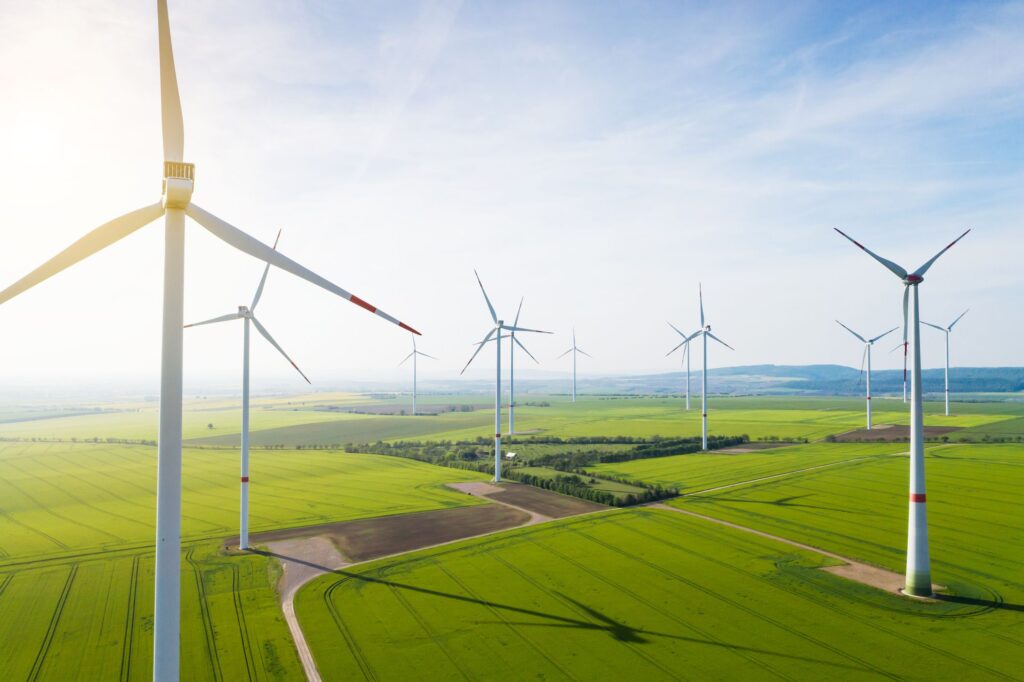A source for environmentally responsible financial investments.
Wealth In Green, your source for sustainable and informed investment insights.


Sustainable Finance: Why Is It Essential in Today’s World?
1. An Essential Response to Climate Challenges
Climate change is undoubtedly one of the greatest challenges humanity faces today. Devastating storms, prolonged droughts, melting glaciers – the signs are clear, and the consequences are dramatic for the planet. In light of this, traditional investments directed towards polluting or extractive industries seem outdated. Sustainable finance offers a solution by channeling capital into projects with a positive environmental impact. It encourages investments in renewable energy, clean technologies, and sustainable agricultural practices. Investing sustainably means supporting companies that develop solutions to reduce CO2 emissions, decrease water consumption, and protect biodiversity. In the long term, this not only creates a positive impact on the environment but also helps limit the costs and risks associated with climate-related disasters. By adopting sustainable finance strategies, investors and companies play an active role in combating climate change, thereby contributing to a greener economy.
2. Promoting Social Justice and Corporate Responsibility
Sustainable finance is not limited to environmental issues; it also incorporates social and governance (ESG) criteria, emphasizing corporate social responsibility. In a global context marked by inequalities and injustices, it is essential that companies consider the social impact of their activities. Thus, socially responsible investments focus on companies that respect human rights, ensure safe and fair working conditions, and promote inclusion and diversity. A key aspect of sustainable finance lies in corporate transparency and integrity. Investors and consumers today demand greater transparency and accountability from companies. In this context, businesses are increasingly driven to align their actions with ethical practices. This enthusiasm for socially responsible companies is particularly strong among younger generations, who want to invest in businesses aligned with their personal values.

3. Mitigating Financial Risks Through a Long-Term Vision
By integrating sustainability criteria, sustainable finance also enables better financial risk management. Traditionally, financial risks were focused on aspects like market volatility and interest rates, but sustainable finance adds an additional layer of analysis. Indeed, companies exposed to environmental and social risks can face significant challenges: water pollution, excessive emissions, ethical scandals – all of these risks can lead to stock declines and damage to their reputation. Take, for example, some major oil companies, which have seen their market value drop following ecological disasters. By investing in sustainable companies, investors aim to reduce this volatility and protect their investments over the long term. This approach creates a virtuous cycle, where addressing sustainability issues helps anticipate risks and build more resilient financial portfolios.
4. Growing Demand from Investors for Ethical Investments

Today, sustainable finance also meets a strong demand from investors. Investors, especially younger generations, are increasingly aware of the impact of their financial choices. They want to know that their money is being used to support causes they care about, rather than funding polluting or controversial industries. This awareness has led to the rise of ESG funds, which cater to this demand for transparency and accountability. Ethical funds, green bonds, and investments in ecological and social start-ups are growing steadily, and this trend is expected to strengthen in the coming years. Through sustainable finance, investors see an opportunity to align their personal values with their financial portfolio.
5. An Increasingly Favorable Regulatory Framework
Governments and international institutions are also promoting sustainable finance through regulations and policies. For example, the European Union has introduced the Green Taxonomy, a classification system for sustainable economic activities, which helps guide investors in making informed choices. Additionally, the Paris Agreement set ambitious goals for reducing CO2 emissions, prompting many countries to revise their financing policies to align with these commitments. These regulations create a favorable environment for sustainable investments by reducing uncertainties and boosting investor confidence. They also demonstrate that sustainable finance is far from being just an option—it is on its way to becoming the standard, with a future-oriented vision rooted in sustainable development.
6. Economic Opportunities and a Driver of Innovation
Finally, sustainable finance is not just about ethics or environmental concerns; it also opens up new economic opportunities. By investing in innovative sectors such as clean technologies, circular economy, and sustainable mobility, sustainable finance drives job creation and the development of new markets. Many innovative start-ups specializing in areas like renewable energy, recycling, or sustainable agriculture are emerging thanks to capital directed toward sustainable finance. This shift toward a more sustainable and resilient economy is also a driver of innovation. Green innovation is encouraged to tackle future challenges, representing an opportunity for companies and countries to position themselves as leaders in these fields. In the long term, sustainable finance helps build an economy that no longer relies on the continuous exploitation of natural resources but instead promotes circular and sustainable solutions.

Sustainable finance today embodies much more than a passing trend. It addresses current environmental and social challenges while offering a long-term perspective to manage financial risks and seize growth opportunities. By channeling capital into responsible projects and companies, sustainable finance envisions a future where economic prosperity, environmental protection, and social equity can coexist.
Each day, sustainable finance gains momentum. It has become a cornerstone of a transforming economy, striving to harmonize growth with resource preservation and respect for people. It’s a financial model designed to meet the expectations of a more conscious society, which has realized the imperative of transforming how we invest to build a better world.
